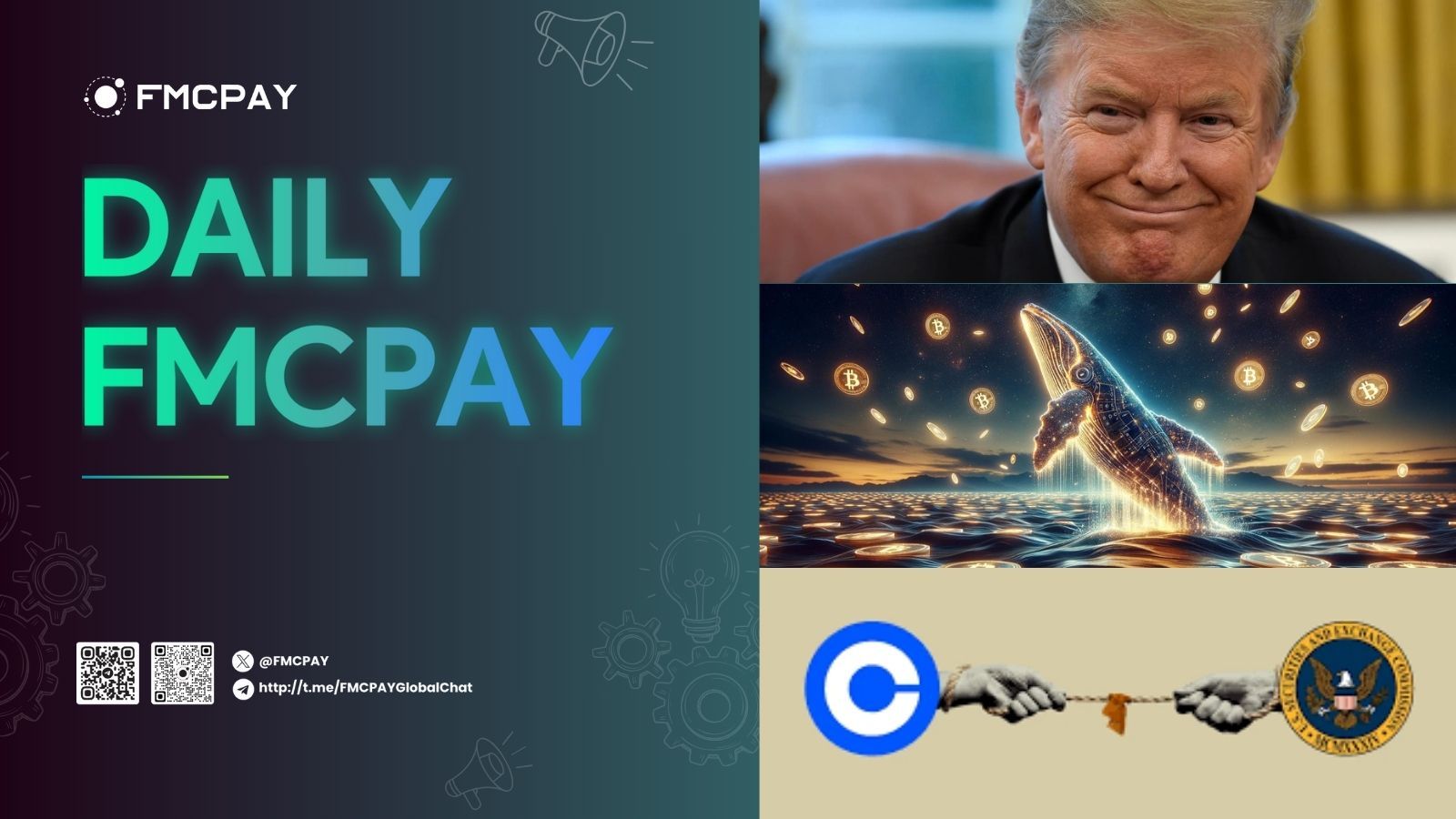If Donald Trump wins the forthcoming elections, cryptocurrency specialists believe Bitcoin would act as a reserve asset. This scenario might spark a worldwide hash war among major economies.
Amid previous President Donald Trump’s tremendous Bitcoin popularity, there have been discussions on Satoshi Street regarding the possibility of Bitcoin being a reserve asset during Trump’s presidency. Bitcoin guru Max Keiser suggested that if this occurs, there would be a ‘Global Hash Rate’ in which top economies compete for a share of the Bitcoin hash power.

Will Donald Trump initiate Bitcoin reserves as part of treasury
Amid previous President Donald Trump’s tremendous Bitcoin popularity, there have been discussions on Satoshi Street regarding the possibility of Bitcoin (BTC) being a reserve asset during Trump’s presidency. Bitcoin guru Max Keiser suggested that if this occurs, there would be a ‘Global Hash Rate’ in which top economies compete for a share of the Bitcoin hash power.
These talks are taking off owing to Bitcoin-friendly officials. Former presidential candidate Vivek Ramaswamy has been advising Trump on bitcoin since January, proposing that the currency be backed by commodities such as bitcoin. Similarly, Independent candidate Robert F. Kennedy, Jr. proposed backing US Treasury notes with assets such as gold, silver, platinum, or bitcoin to help control inflation.
Senator Cynthia Lummis, dubbed the “Crypto queen” of Congress, has expressed her support for Bitcoin in national finance. Lummis reaffirmed her support for Bitcoin following Trump’s remark, calling it a “incredible store of value” and advocated for using it to diversify the nation’s investments.
According to Alex Thorn, Galaxy Digital’s head of firmwide research, Bitcoin has the potential to significantly alter the global financial system. Thus, he regards Bitcoin as a valuable strategic reserve asset for the government. Speaking to Forbes, Thorn stated:
“As a global decentralized commodity money with sound properties, Bitcoin will undoubtedly play a growing role in geopolitics and international trade”.
Can US trigger global hash rate war
Over the previous decade, the United States has accumulated Bitcoin through illegal cross-border transactions. It also has the largest percentage of Bitcoin hash rate, the most network nodes, and the highest Bitcoin mindshare of any country in the world. If he wins the forthcoming US elections, he will most likely be the first President who supports Bitcoin.
Max Keiser, a famous Bitcoin booster, stated that he foresaw the onset of the ‘Global Hash War’ in 2019, which might become a reality very soon. This would represent a significant change from nation-states seeking to outlaw Bitcoin to actually accepting the asset class.
As Alex Thorn explained, “Simple game theory dictates that adoption by one nation necessitates that other nations consider the same, whether friend or foe.”
As predicted back in 2019 when I coined the the term ‘Global Hash War’ to describe nations switching from trying to ban #Bitcoin to hoarding BTC as a strategic reserve.
I was the lone voice at the time, now it’s common knowledge.
Note: Jason Lowery plagiarized the idea some… https://t.co/dWKTBsF0Du
— Max Keiser (@maxkeiser) July 3, 2024
Check Out the Latest Prices, Charts, and Data of BTC/USDT
Retail investors buy the dip while crypto whale sells $323M in Bitcoin (BTC)
Retail investors are shown surprising confidence by purchasing the dip despite a major sell-off by a notable crypto whale. The recent transactions have sparked interest in the Bitcoin and cryptocurrency markets, impacting the market’s short-term trajectory.
Bitcoin fell to $57,800 early Thursday during Asian trading hours, a two-month low. Despite the decline, the price had returned to $59,000 at the time of writing.

Crypto whale sold $323M worth of Bitcoin
During the Bitcoin (BTC) turbulence, a crypto whale wallet, 3G98j, placed an eye-watering 1,800 BTC, worth $106.08 million, into Binance. Typically, big payments to a cryptocurrency exchange indicate a future sell. In the last week alone, this crypto whale has moved 5,281 BTC—worth about $323 million at an average price of $61,196—to the same site.
Despite the significant sell-offs, ordinary investors have been unusually positive. According to statistics from Santiment, a behavior analytics company, the retail sector is actively acquiring Bitcoin below the $60,000 barrier.
📉 Bitcoin has just dropped to as low as $59.4K and Ethereum to $3.1K in the previous hour.
The crowd is showing signs of seeing this as a buy the dip opportunity. Ideally, we wait for their enthusiasm to settle down. The time to buy is when they are impatient and skeptical. pic.twitter.com/5C1BmEn8Av
— Santiment (@santimentfeed) July 3, 2024
Cold Blooded Shiller, a pseudonymous cryptocurrency expert on X (previously Twitter), shares this opinion. He offered a nuanced assessment of current market circumstances, highlighting the difficulties that beginner traders face.
The market remains difficult to trade for the inexperienced.
Conditions remain significantly weighted on the downside and the momentum is all there.
Adapting to the side with the momentum is incredibly important but that doesn’t make it a necessity to trade. For many of you… pic.twitter.com/w9F0o42JGU
— Cold Blooded Shiller (@ColdBloodShill) July 4, 2024
Furthermore, Cold Blooded Shiller discussed the dangers and strategies under the present market conditions. He stressed the need of patience and strategic disengagement, indicating that many people would be better off avoiding active trading.
“For many of you, sitting on the sidelines and doing other things is the biggest alpha I can bestow upon you,” Cold Blooded Shiller stated.
Furthermore, he emphasized the psychological impact of trading in such turbulent settings. He encouraged retail traders to calm down and control their emotions while timing the market, emphasizing the importance of strategic patience until the market exhibits evidence of a positive momentum change.
The disparity between the crypto whales’ behavior and everyday investors’ enthusiasm provides a complicated picture of the Bitcoin market. While significant holdings appear to be selling out, the broader investor base remains bullish, perceiving reduced prices as a good entry point.
Check Out the Latest Prices, Charts, and Data of BTC/USDT
Coinbase files against SEC blockade on Gary Gensler info in court
Coinbase, the top cryptocurrency exchange, deepens its legal battle with the SEC by contesting the agency’s restriction of access to critical emails from Chair Gary Gensler.

The conflict between Coinbase and the United States Securities and Exchange Commission (SEC) heats up as the cryptocurrency exchange demands critical information from SEC Chair Gary Gensler. Coinbase, one of the main cryptocurrency exchanges, is attempting to get records that might throw light on the SEC’s stance on digital assets, escalating the current debate about regulatory control in the crypto industry.
Let’s take a short look at recent developments to see how they’ve sparked legal action between Coinbase and the US Securities and Exchange Commission.
Coinbase pushes for transparency in SEC’s crypto oversight
Coinbase has taken a dramatic step in opposing the SEC’s attempt to block access to Chair Gary Gensler’s emails. This request is part of an ongoing legal battle between the top cryptocurrency exchange and the regulatory agency, which has enormous ramifications for the future regulation of digital assets in the United States.
Meanwhile, Paul Grewal, Coinbase’s Chief Legal Officer, stressed the importance of this information. In a recent social media post, Grewal stated:
We have responded to the SEC’s effort to block reasonable discovery from Mr. Gensler in a case that it—not Coinbase—chose to file. Democracy, as well as due process, dies in darkness. We appreciate the Court’s careful consideration of this matter.
This supports Coinbase’s position that SEC openness is critical for fair legal procedures and regulatory clarity. Notably, the issue revolves around Coinbase’s demand for Gensler’s emails, which may expose details about his views on the regulatory status of digital assets.
Meanwhile, Coinbase claims that Gensler’s professional career and public opinion have had a substantial impact on the understanding of cryptocurrency regulation. Prior to his term as SEC Chair, Gensler held key positions, including Chair of the Commodity Futures Trading Commission (CFTC) and an academic position at MIT where he taught about blockchain technology and financial regulation.
Gensler’s statements, particularly those from his career as an academic and his early days at the SEC, are seen as critical to understanding the public’s and market players’ conceptions of regulatory expectations for digital assets. These materials are intended to assist Coinbase’s defense against the SEC’s enforcement actions, with the argument that Gensler’s remarks and communications are essential to establishing whether the SEC gave fair notice of the legal framework for digital assets.
Potential impact on crypto sector
Coinbase’s legal strategy is more than simply a procedural step; it is a watershed point in the larger debate for crypto regulation in the United States. The outcome of this dispute may establish a precedent for how regulatory authorities deal with digital asset platforms and maintain transparency.
Meanwhile, Coinbase claims that Gensler’s failure to deliver the requested records impedes their ability to provide a fair defense based on historical and contextually relevant regulatory information. The SEC’s refusal to share Gensler’s conversations has spurred controversy over the openness and accountability of regulatory activities.
Coinbase claims that these records are critical to understanding the SEC’s shifting attitude on digital assets and whether market participants received adequate regulatory clarification. This legal dispute exemplifies the tension between modern financial platforms and old regulatory structures.
Meanwhile, Coinbase’s request for access to Gensler’s correspondence underscores a larger call for transparency and justice in the regulation of innovative technology. Notably, the outcome of this legal challenge might have an impact on how regulatory bodies approach the administration of digital assets and explain their policies to the public and industry stakeholders.


